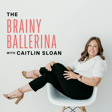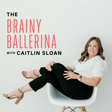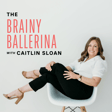
51. Balancing Art and Admin: Toby Lewellen’s Transition from Dancer to Director of Development at Boca Ballet Theatre
In this warm and candid episode, I chat with Toby Lewellen about his path from reluctantly signing up for ballet class as a child to spending 11 years as a leading artist at Ballet Arkansas.
Though he originally saw it as a stepping stone, Toby stayed for over a decade, drawn in by the community, repertoire, and opportunity to dance featured roles. He shares behind-the-scenes stories about partnering with his wife onstage, why being an ugly stepsister in Cinderella was a career highlight, and what led to his graceful transition out of performing after an injury.
Now in a new chapter at Boca Ballet Theatre, Toby discusses his role as Director of Development, the challenges and rewards of teaching, and the unique structure of Boca’s summer intensive—where dancers gain rare, extended access to top company directors.
Key Topics:
✨Toby’s training at Peoria Ballet, Grand Valley State University, and Butler University
✨Joining a company with just three dancers (!), and being part of its growth over the course of his professional career
✨The realities and rewards of dancing in a small company
✨The importance of mental health and community in a dancer’s career
✨The unique programming Toby is a part of at Boca Ballet including their summer intensive and college dance fair
Connect with Toby:
INSTAGRAM: instagram.com/tobias3651
BOCA BALLET WEBSITE: bocaballet.org
BOCA BALLET INSTAGRAM: instagram.com/bocaballet
EMAIL TOBY: tlewellen@bocaballet.org
Links and Resources:
Get your copy of The Intentional Career Handbook
Set up ticketing for your next event with DRT (Make sure to mention that The Brainy Ballerina sent you!)
1-1 Career Mentoring: book your complimentary career call
Let’s connect!
My WEBSITE: thebrainyballerina.com
INSTAGRAM: instagram.com/thebrainyballerina
Questions/comments? Email me at caitlin@thebrainyballerina.com


